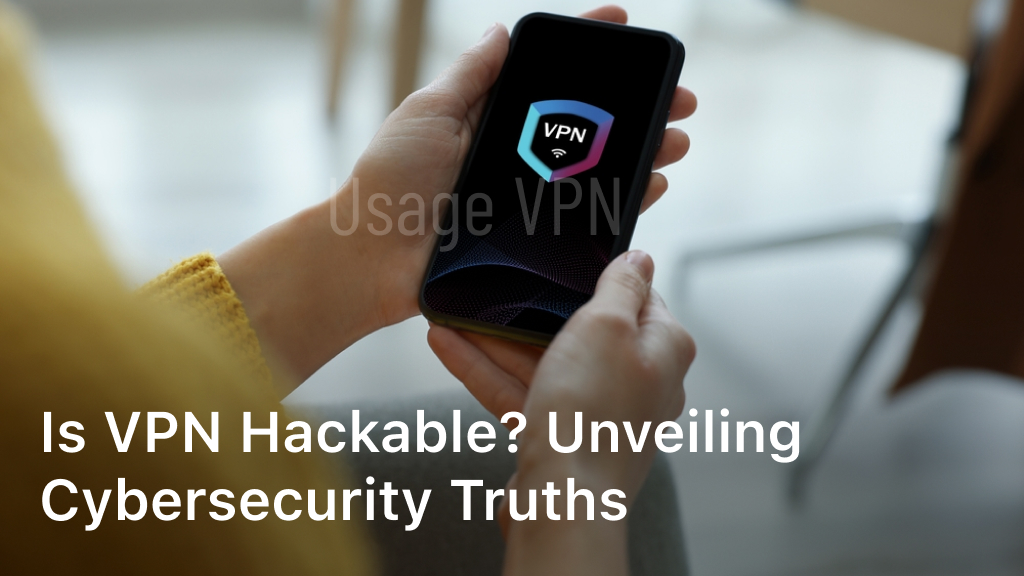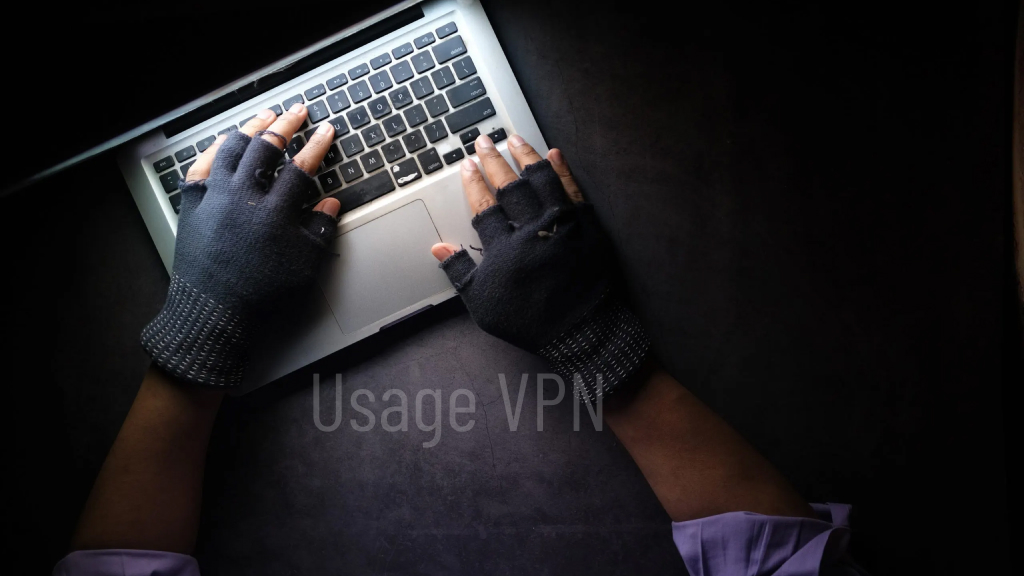Is VPN Hackable? Unveiling Cybersecurity Truths

Welcome to our article where we will uncover the truth behind VPN security and the hacking risks associated with using a VPN. With the increasing need for online privacy and data protection, VPNs have become popular tools for safeguarding our digital lives. However, it is crucial to understand the potential vulnerabilities that exist in VPN connections.
In this article, we will explore the various security aspects of VPNs and shed light on the vulnerabilities they might have. By understanding these risks, you can take the necessary measures to protect your VPN connection and ensure a secure online experience.
So, is VPN hackable? Let’s find out together by diving into the world of VPN security and exploring the measures you can take to mitigate any potential risks. Stay tuned for an in-depth analysis of VPN vulnerabilities, hacking prevention, and steps to protect your VPN connection.

Understanding VPN Security and Vulnerabilities
In this section, we will delve into the various security aspects of VPNs. Understanding the vulnerabilities that exist in VPN connections, such as weak encryption protocols and privacy concerns, is essential to safeguarding your VPN connection.
VPN Vulnerabilities:
- Weak encryption protocols: Some VPN services may use outdated or weak encryption algorithms, making them more susceptible to hacking attempts.
- Privacy concerns: Certain VPN providers may log and track user data, compromising the privacy and anonymity of your online activities.
VPN Encryption:
Encryption is a crucial feature in VPNs that ensures the security of your data. Strong encryption algorithms such as AES (Advanced Encryption Standard) with 256-bit key length provide robust protection against unauthorized access.
VPN Privacy:
When choosing a VPN service, it is important to consider their privacy policies. Look for providers that have a strict no-logs policy, meaning they do not collect or store any user data. Additionally, opt for services located in jurisdictions that prioritize privacy and have stringent data protection laws.
By understanding the vulnerabilities in VPN connections, as well as the importance of encryption and privacy, you can make informed decisions to enhance the security of your VPN and protect your online activities.
Hacking Risks and Prevention in VPNs
When using a VPN, it’s crucial to be aware of the potential risks associated with hacking and take measures to protect your connection. Hackers are constantly evolving their techniques to compromise VPNs, but by understanding these risks and implementing the right security measures, you can enhance the safety of your VPN experience.
Common Techniques Used by Hackers
- Man-in-the-Middle (MitM) Attacks: Hackers intercept the communication between your device and the VPN server, allowing them to access sensitive information.
- Malware Infections: Malicious software can be injected into your system, compromising your VPN connection and potentially stealing your data.
- DNS Leaks: A DNS leak occurs when your device’s DNS request bypasses the VPN server, exposing your browsing activities to your ISP and potential hackers.
Enhancing VPN Security Measures
To prevent these hacking risks, follow these essential VPN security measures:
- Choose a Reliable VPN Provider: Select a reputable VPN service that offers robust encryption protocols and has a track record of prioritizing user security.
- Enable Kill Switch: Activate the kill switch feature in your VPN client to immediately disconnect your internet connection if the VPN connection drops, preventing any data leaks.
- Use Strong Encryption: Opt for VPNs that use AES-256 encryption, which is currently the most secure encryption standard available.
- Regularly Update Your VPN Software: Keep your VPN client and apps up to date to ensure you have the latest security patches and bug fixes.
- Avoid Public Wi-Fi Networks: Public Wi-Fi networks are more susceptible to hacking attempts. Whenever possible, connect to your VPN on secured networks.
- Utilize Two-Factor Authentication (2FA): Add an extra layer of security by enabling 2FA for your VPN account. This ensures that even if your password is compromised, hackers still can’t gain access without the additional authentication step.
By following these preventive measures, you can significantly reduce the risks associated with VPN hacking and enhance the overall security of your VPN connection.
Protecting your VPN Connection
In order to ensure a secure and reliable VPN experience, it is essential to take practical steps to protect your VPN connection. By implementing the following measures, you can enhance the security of your VPN and safeguard your confidential information.
1. Use Strong Passwords:
Create a unique and strong password for your VPN account. Avoid using common passwords or easily guessable combinations of letters, numbers, and symbols. A strong password will greatly reduce the risk of unauthorized access to your VPN connection.
2. Enable Two-Factor Authentication:
Take advantage of the added layer of security provided by two-factor authentication. By enabling this feature, you will be required to provide a second form of verification, such as a temporary code sent to your mobile device, in addition to your password. This significantly reduces the risk of unauthorized access to your VPN account.
3. Regularly Update your VPN Software:
Stay updated with the latest security patches and improvements by regularly updating your VPN software. VPN providers often release updates to address any vulnerabilities that are discovered. Keeping your VPN software up to date ensures that you have the latest security features and reduces the chances of any potential exploits.
4. Enable Firewall Protection:
Activate your device’s firewall to add an extra layer of security to your VPN connection. A firewall helps to monitor and control incoming and outgoing network traffic, preventing unauthorized access to your system.
5. Beware of Public Wi-Fi Networks:
Avoid connecting to your VPN through unsecured public Wi-Fi networks. Public networks can often be compromised, making it easier for hackers to intercept your data. If you must use public Wi-Fi, consider using a trusted VPN service to secure your connection.
6. Utilize Kill Switch:
Enable the kill switch feature offered by your VPN provider. A kill switch automatically terminates your internet connection if the VPN connection drops unexpectedly. This prevents any sensitive data from being transmitted without encryption, ensuring your privacy is maintained.
By following these practical steps, you can protect your VPN connection and enjoy a secure, private, and reliable online experience. Keep in mind that while VPNs provide enhanced security, it is crucial to remain vigilant and stay updated on the latest security practices to stay one step ahead of potential threats.
Conclusion
In conclusion, our exploration of VPN security has shed light on the vulnerabilities that exist in these systems. While VPNs are not completely impervious to hacking, there are steps you can take to enhance their protection.
By implementing strong encryption protocols and regularly updating your VPN software, you can significantly reduce the risk of your VPN being compromised. Additionally, following best practices such as using strong passwords and enabling two-factor authentication further fortify your VPN security.
It is important to understand that no system is 100% hack-proof, but by taking these security measures and staying informed about the latest threats, you can enjoy a secure VPN connection. Remember, vigilance and proactive measures go a long way in mitigating potential risks.
FAQ
Is VPN hackable?
VPNs provide a layer of encryption and security, making them difficult to hack. However, it’s essential to understand that no system is completely impervious to hacking. While the chances of a VPN being hacked are minimal, it is still theoretically possible for a determined hacker to exploit vulnerabilities in a VPN’s encryption or gain access through other means.
What security measures does a VPN have?
VPNs employ various security measures to protect your connection and data. These measures include encryption, which ensures that your online activities are secure and private. VPNs also use authentication protocols to verify the identity of users and prevent unauthorized access. Additionally, reputable VPN services regularly update their software to patch any vulnerabilities that may arise.
Are there any vulnerabilities in VPN connections?
While VPNs provide a high level of security, they may still have vulnerabilities that can be exploited. One potential vulnerability is weak encryption protocols, which can be targeted by skilled hackers. Another concern is VPN providers storing user logs or potentially selling user data, compromising privacy. It’s crucial to choose a reliable and trustworthy VPN provider that prioritizes security and privacy.
How can I prevent hacking risks in VPNs?
To mitigate hacking risks in VPNs, it’s important to take several precautions. Firstly, choose a reputable VPN provider that utilizes robust encryption protocols and has a strict no-logs policy. Additionally, regularly update your VPN software to ensure you have the latest security patches. Avoid connecting to unsecured public Wi-Fi networks, as these can be exploited to intercept VPN traffic. Finally, practice good cybersecurity habits by using strong, unique passwords and enabling two-factor authentication when available.
How can I protect my VPN connection?
There are several steps you can take to protect your VPN connection. Firstly, use strong and complex passwords for your VPN account and change them regularly. Additionally, enable two-factor authentication if your VPN service supports it, as this adds an extra layer of security. Furthermore, keep your VPN software up to date to ensure you benefit from the latest security enhancements. Finally, be cautious when downloading files or clicking on suspicious links while connected to your VPN to minimize the risk of malware or phishing attacks.
